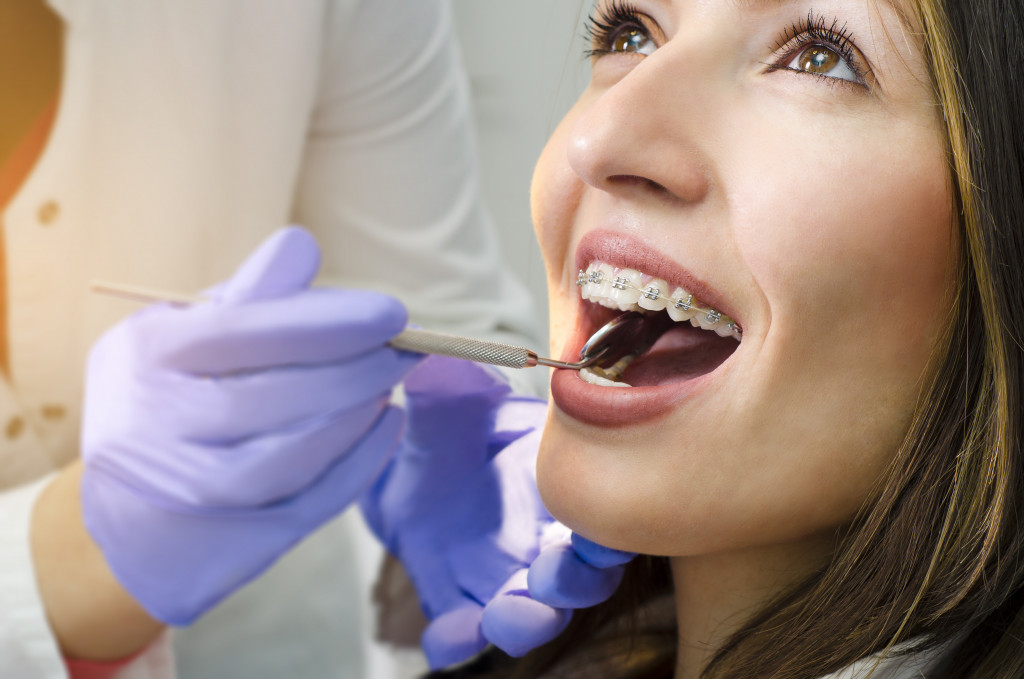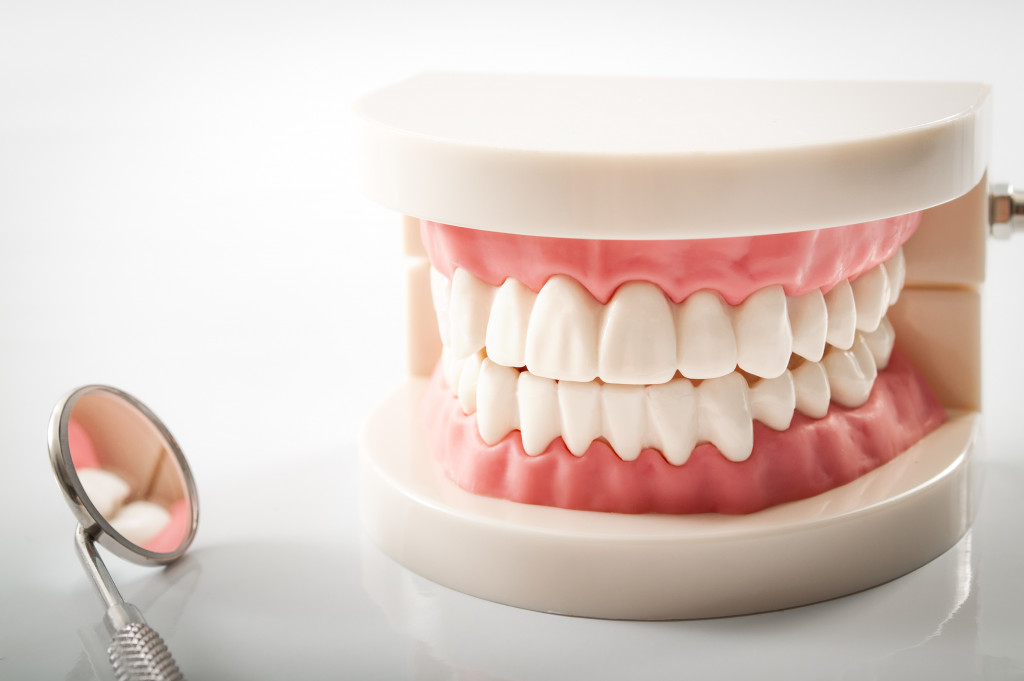- Understanding the type of overbite you have is crucial in managing it effectively.
- Regular dental check-ups are essential for monitoring and addressing any complications.
- Good oral hygiene habits, including brushing twice daily, using fluoride toothpaste, and eating a balanced diet, can prevent dental issues.
- Orthodontic treatments, such as traditional braces and clear aligner therapy, can effectively correct an overbite.
- Clear aligners, like Invisalign, offer a convenient and discrete option for managing an overbite.
Dealing with an overbite, where the upper teeth protrude beyond the lower teeth, can be a source of discomfort and self-consciousness. Yet, managing this common dental issue is more straightforward than ever with the right strategies and treatments. As you journey toward a healthier smile and improved bite alignment, remember that every small step can lead to significant change. Here’s how you can tackle an overbite and enhance your oral health.
1. Understand Your Condition
Firstly, it’s essential to understand what an overbite is and how it affects your oral health. An overbite can cause difficulty chewing and speaking and, if severe, can lead to jaw pain and wear on your teeth. It’s not just a cosmetic issue; it’s a functional one that deserves attention.
Educate yourself on the different types of overbites – some are skeletal, meaning the jawbone is the issue, while others are dental, meaning the teeth are misaligned. Your dentist can help you identify the kind of overbite you have and discuss the implications for your dental health. This knowledge is your first step toward effective management.
2. Regular Dental Check-Ups

Regular visits to the dentist are critical. They will monitor the progression of your overbite and can catch any complications early. Dental check-ups provide the opportunity to clean areas that are difficult to reach, which is especially important when you have an overbite that may hinder proper cleaning.
During these visits, be proactive. Ask questions and express any concerns you may have. If your overbite is causing wear on your teeth or other issues, your dentist can help you address them before they become more serious. These visits are the cornerstone of managing your dental health.
3. Adopt Good Oral Hygiene Habits
Good oral hygiene is paramount, especially when dealing with an overbite. Remember, maintaining good oral hygiene can prevent additional dental issues from compounding your overbite concerns.
Here are some good oral hygiene habits:
Brush Twice a Day
Establish a routine of brushing your teeth twice a day — once in the morning and once before bedtime. This helps to remove plaque, which can lead to tooth decay and gum disease. Pay special attention to the back teeth and the areas around brackets or other orthodontic devices if you use them to correct your overbite.
Use Fluoridated Toothpaste
Fluoride is a key ingredient in preventing tooth decay and strengthening enamel. Always opt for a toothpaste that contains fluoride. It helps to protect your teeth by making them more resistant to acid attacks from plaque, bacteria and sugars in your mouth.
Eat a Balanced Diet
Your oral health is greatly influenced by the food you consume. Limit sugary drinks and snacks, as these can increase the risk of tooth decay. Instead, choose a balanced diet of fruits, vegetables, lean proteins, and dairy products. Not only are these foods healthier, but they also help to clean the teeth and gums.
Don’t Skip Nighttime Brushing
Brushing your teeth before bed is crucial. It removes the day’s build-up of plaque, bacteria, and food particles. Nighttime brushing is even more essential when dealing with an overbite, as misaligned teeth provide more hiding spots for food particles. A thorough cleaning before bed means you’ll have less plaque and bacteria in your mouth while you sleep, reducing the risk of tooth decay and gum disease.
4. Consider Orthodontic Treatments

Orthodontic treatments can be a game-changer for those with an overbite. Traditional braces have been the go-to solution for years, effectively shifting teeth into the proper position. They require regular adjustments and can correct even severe cases of misalignment.
However, braces are not the only option. Depending on the severity of your overbite, you may be a candidate for other orthodontic devices or procedures that can be less invasive and more aesthetic. Consult with an orthodontist to explore all available treatments that can address your specific needs.
5. Explore Clear Aligner Therapy
If you’re looking for a less conspicuous method of correcting your overbite, clear aligner therapy can be an excellent solution. This modern treatment involves wearing custom-made, nearly invisible aligners that gradually move your teeth into the desired position. These aligners are removable, allowing you to eat and brush your teeth without the restrictions of traditional braces.
Clear aligners, such as Invisalign, are designed to fit snugly over your teeth, making them comfortable and discrete. You’ll switch to a new set of aligners every couple of weeks, and with each change, you’ll see your teeth moving closer to their ideal position. It’s a convenient and flexible option that has made orthodontic treatment more accessible and appealing to many.
To Wrap It Up
Addressing an overbite is not only crucial for your dental aesthetics but also for your overall oral health. From understanding your condition to exploring modern treatments like Invisalign, you have the power to transform your smile. It requires dedication to good oral hygiene, regular check-ups, and a willingness to invest in orthodontic treatment if necessary.
By following these practical tips, you can effectively manage your overbite, improve your dental health, and gain the confidence of a well-aligned smile. Remember, the journey to a perfect bite is a marathon, not a sprint, and each step you take is progress toward your goal.






